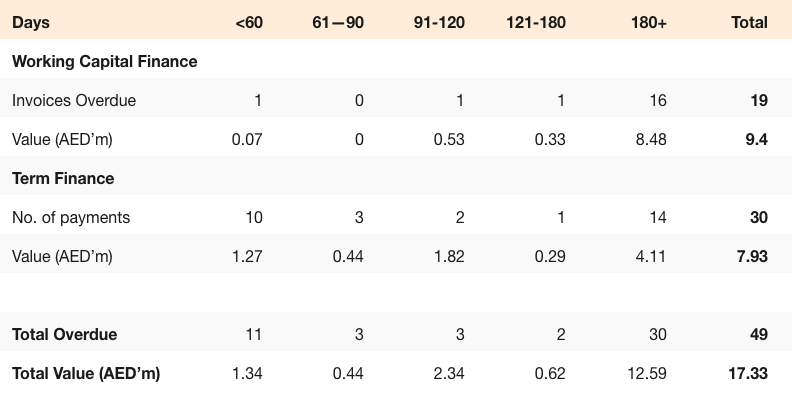It’s an uncertain time for SMEs, and whilst navigating this unchartered territory, it is hard to know if you are making the best decisions for your business. It’s not only cash-flow problems that SME owners are facing, they also have to plan effective communication and follow government guidelines.
Beehive is an SME for SMEs, and last week our senior management team came together in a webinar to deliver advice to other SMEs to help with decision making and business management at this time.
You can watch the webinar here or read on for an overview of the discussion.
Internal and external communication
Give your staff some certainty
It’s important to make sure staff know what’s going on in order to maintain a positive working environment. Keep your staff updated regularly and let them know how Covid-19 is affecting the business. By keeping them informed they will know management is being proactive and looking to safeguard the business and the team, making them feel valued. The best way to communicate with the team is to do it all at once, ensuring no one knows before anyone else.
Communicate frequently
Try to continue to communicate as you did in the office and use videoconferencing tools to get face-to-face contact that is currently missing. It’s important that top management are also speaking to the whole team, so they are still confident in their involvement. This will minimize the spread of rumours.
It’s also important that communication goes both ways. Listen to what staff want, and take on board suggestions on how to make their experience working from home more enjoyable and productive.
Dealing with Cashflow issues
Cutting staff costs
The most important cost to safeguard at this time is jobs. If you need to make HR changes then you can temporarily adjust pay and schedules, rather than making redundancies. Implementing a company-wide pay reduction gives a mentality that ‘everyone’s in it together’ and makes sure that everyone is still motivated, and morale isn’t affected. These decisions aren’t easy, so be sure to listen to the team to make sure they still feel valued.
Another option is to suggest staff take paid or unpaid leave now, so they have something to return to once the crisis is normalising.
Cutting costs
Keep enough cash for business essentials like rent, utilities, wages etc. If you don’t have enough, have a conversation about deferrals or reductions. Look at what’s planned in your budget and if you have any upcoming purchases, see if you can delay them or if you can do without them. If you’re looking to hire new staff, cut costs by doing it through word of mouth, rather than through a recruiter.
Cashflow budgeting
Keep it simple but keep it regular. Create a forward-looking rolling cashflow that you are updating regularly. Include the amount of cash you have now, how much is due to come in soon, and do some stress testing. Create a cashflow for what you expect and one for a worst-case scenario, to make sure you’re not in a detrimental position personally.
Dealing with supply chain and customers
Contracts
Look at your contracts and see what the internal and external risks are. If you think there’s going to be a delay in receivables from a client you can look for trade insurance. Check out whether suppliers are national or international and if they’re in countries which are badly affected by Covid-19, look to move your suppliers to local ones.
Collaboration
If you need to, talk to your suppliers and ask for extended credit terms. If you can agree to long term contracts with certain suppliers, they will increase their credit terms or reduce the pricing based using a bulk purchase concept.
Another option is to see how you can adapt the structure and output of your business. For example, if you’re a marketing company you could look to provide crisis comms in return for services. Keep an agile approach to your supply chain.
You could also look into early payment plans, where you offer discounts for early payments, which will help cashflow.
Procedures and government guidelines
The following guidelines were valid at the time of recording the webinar, and will be subject to change.
Ministry of Human Resources & Emiratisation resolution on remote working
When the curfew is lifted remote working will still be encouraged. Thirty per cent of an employers’ workforce will be able to work from the premises at any given time, and they must follow these guidelines:
• Sit far away from each other to maintain social distancing
• The office should be cleaned twice a day
• Temperatures should be checked twice a day
• If there is a shift pattern for employees to come into the office, remote working should be prioritized for more vulnerable people e.g. people with chronic illnesses
Ministry of Human Resources & Emiratisation employment update
If a business needs to cut costs , the following measures should be implemented gradually using the following sequence:
• Remote working
• Paid leave
• Unpaid leave
• Temporary reduction of salary or permanent reduction of salary
If a company has a surplus of expat employees, these employees could be rotated between businesses in different Freezones or onshore jurisdictions. There is a virtual labour market system to enable this. As this is subject to constant change, it is advisable to contact your relevant freezone/DED authority and verify the most current employment procedures that should be followed.
Ministry of Human Resources & Emiratisation’ Early leave initiative
This initiative was published to encourage employers to provide their employees the chance to return to their home country during the COVID-19 outbreak by taking their annual leave earlier in the year than many employees usually do. The employer is obliged to pay for the cost of a return flight to the employee’s home country if or when the flight becomes available.
Additional useful reading
Employment updates and new government initiatives and how they apply:
• COVID-19 Middle East: Employment update on new government initiatives
• New Ministerial Resolution relating to employment and COVID-19
Changes in tax reporting requirements:
• UAE’s Federal Tax Authority extends tax return deadline
• Navigate Tax, Legal and Economic Measures in response to COVID-19
Bank relief efforts described in detail:
• Banking & Finance – Legal Update
What are the UAE banks doing to help SMEs?
• COVID-19: UAE Central Bank wants banks to speed up stimulus relief
• Combating coronavirus: UAE banks obtain Dh10b at zero interest from Central Bank
• Ghadan 21: Abu Dhabi puts Dh15bn of tenders on offer to local companies
To stay up to date on these topics, it can be useful to subscribe to email updates from reputable law and audit firms. Some examples are:
• Al Tamimi & Co
• Clyde & Co
• PWC Middle East
• Deloitte
For live COVID-19 news updates, social media is the go-to place such as Twitter, Instagram, and LinkedIn. Examples of useful sources to follow are:
• News channels such as Gulf News, The National, etc.
• UAE Govt
• Ministry of Human Resources and Emiratisation (MOHRE)
• Dubai Police/Abu Dhabi Police
• Dubai Government Media Office (Dubai Media Office)
• Local Health authority




